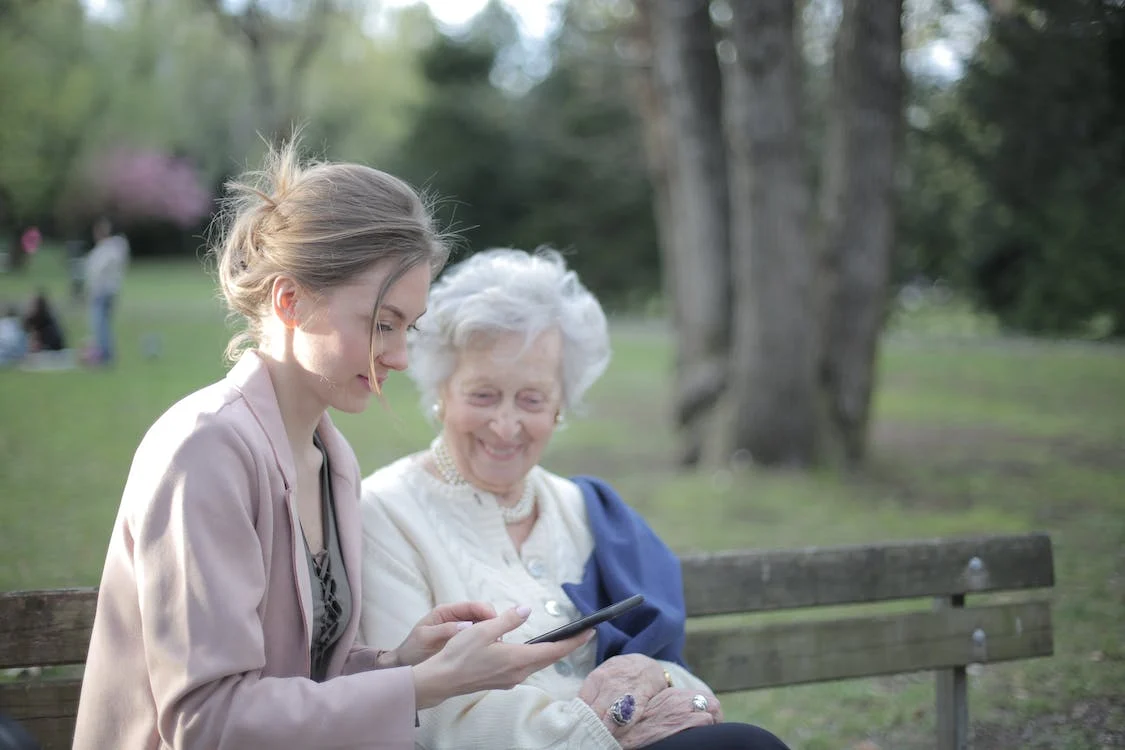Finding yourself caring for an elderly parent can be quite a challenging transition. It is daunting to recognize that your aging parent can no longer care for themselves and appreciate the gravity of the responsibility you are undertaking. But, knowing how to approach this period in life—both practically and emotionally—can make it easier overall.
This post offers tips on what you should expect when caring for an aging parent, with guidance on navigating crucial aspects like medical appointments, home maintenance, and financial considerations, alongside practical ways to guide your own emotions while tending to your loved one’s needs.
Expect to Make Positive Mental Adjustments
Making adjustments to accommodate an aging parent’s needs can be difficult. If you feel overwhelmed, remember that by caring for your elderly loved one, you are showing your love and respect for them. As times change, our perspectives should too.
Think of the situation in terms of what is good for the overall well-being of both yourself and your parents. Maintaining a positive mental outlook can help alleviate stress and worry.
Try to focus on how you can provide assistance responsibly, safely, and kindly rather than worrying about what might go wrong or placing blame on either side. You will need to develop and cultivate resilience, patience, and kindness to afford the best possible care for them.
You May Need to Take Your Parent to Regular Medical Appointments
Aging folks often require regular medical visits due to the higher risk of health issues associated with age. With this in mind, you will want to familiarize yourself with the types of check-ups and tests that your parents may need, when they are required, and how often they should happen.
Preparation is key, as there can be a lot at stake! Make sure to list down essential questions in advance before the visit, so all concerns are addressed during appointments.
Also, don’t forget to research any medications prescribed by their doctor, including potential side effects, the time they should be taken within, and their relations to meals or other types of drugs already being used.
Simplifying Home Maintenance and Other Chores is Part of Caregiving
As a caregiver for an aging parent, part of your duty may entail running errands and assisting with smaller household tasks such as grocery shopping, meal preparation, and routine maintenance. Attending broken furniture or appliances quickly, for instance, can help ensure your elderly family member lives in comfort and safety.
Where applicable, you may also need to purchase useful gadgets such as walkers, wheelchairs, grab rails, and raised toilet seats that allow them to enjoy greater independence while they remain safe at home.
It could also be helpful to use an online calendar so everyone involved in the elderly care process knows when small chores need doing, plus what type of help each person can provide. This helps make sure no one feels like they are carrying all the weight of responsibility alone!
Creating an Accepting and Supportive Environment for Your Parent is Important
Caregiving for an elderly parent can be stressful at times, but remember to always communicate love and support when interacting with them. Simple moments spent listening or chatting – whilst ensuring your loved one knows they are being heard and valued – can have a great calming influence throughout the day.
Everyone needs someone who understands not just their physical struggles, but also their emotional side of the equation.
Encouraging social interaction through organized activities or stimulating outings helps keep our elders occupied while also enhancing a sense of purpose in life, which keeps anxiety levels low!
Understanding the Financial Implications of Caring for an Aging Parent
Caring for an aging parent may also involve a great deal of financial pressure, so it’s crucial to understand what your options are. Start by seeking to understand if there are any government pensions or benefits they may be entitled to, as well as how Medicaid, Medicare, or private insurance providers may help reduce the financial burden.
This could help with some of the expenses you need to cover, such as medical supplies, medication costs, home modifications for accessibility, travel fares, and so forth.
Don’t forget that some seniors prefer maintaining their independence as well as their privacy. If they insist on covering certain purchases on their own, say at shopping malls, salons, and massage parlors, a credit card would be a safer and more convenient option compared to carrying cash around.
Thankfully, some credit cards like the cash back card by SoFi even have discounts and redeemable reward points that seniors can very much enjoy. It’s also a great way to better manage expenses since most credit cards will have a monthly limit. Plus, all the transactions can always be traced back in case there’s a discrepancy.
And where possible, it also pays to consider setting up a trust fund that could help with future care needs. Moreover, you could consider whether their home should be sold to create financial security if they move into residential care down the line. The bottom line is – there are many things to factor in when it comes to weighing financial options based on the implications envisioned.
Plan Physical, Emotional, and Social Activities with Your Parent
Elderly parents often find themselves becoming increasingly isolated due to age-related physical or cognitive limitations. While activities should be tailored according to their abilities and needs, it’s important to plan social events or outings with your parents as well.
Even small trips like local café visits are beneficial. Planning an event – such as a birthday celebration – for them encourages emotional connection and recognition of the importance of their life and presence in yours. If your parents are active and social, consider a physical activity such as a casual stroll together.
It’s also important to carefully assess their capabilities electronically if they would like to use computer-based or internet-based communications, as these can help keep them connected with family members living away from home.
Whatever you do, be sure both of you are comfortable with the activities for your relationship and shared time to remain positive! The smallest activities can go a long way in building special memories that can be looked back on fondly in years to come!
Caring for an elderly or aging parent can be difficult at times, requiring a lot of patience and understanding. Keeping the tips discussed above should help you manage your own emotions, as well as give you practical steps to consider before starting to care for your folks in their golden age. The most important thing to remember is that your love and support will mean everything to them during this time!
Also Read: How Seniors Can Combat Health Problems They May Face


